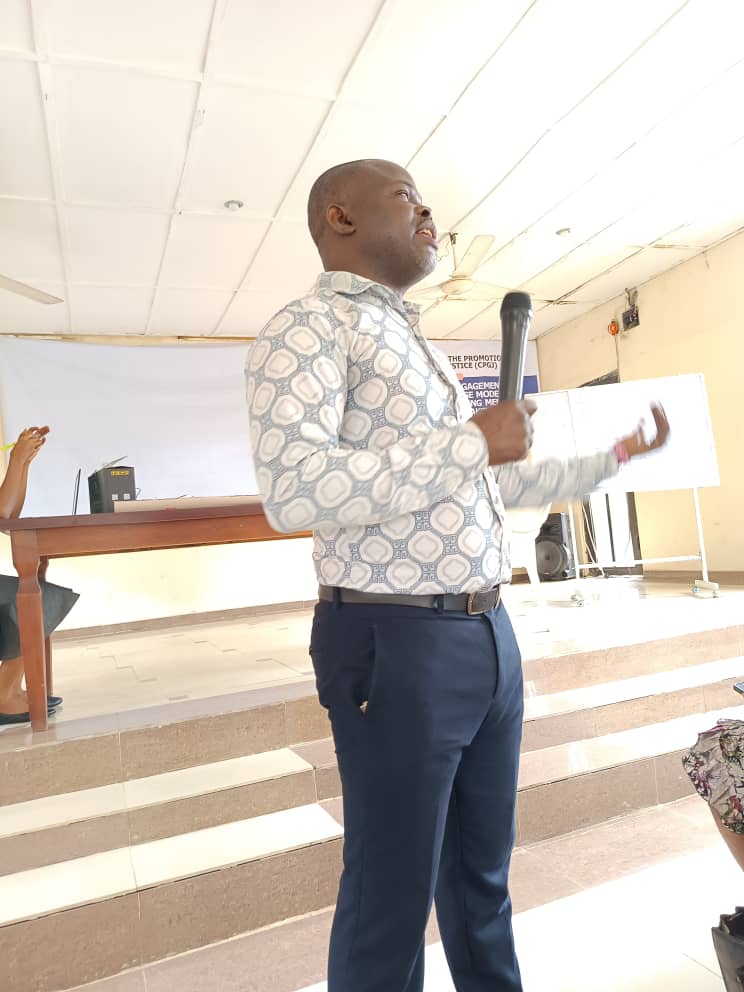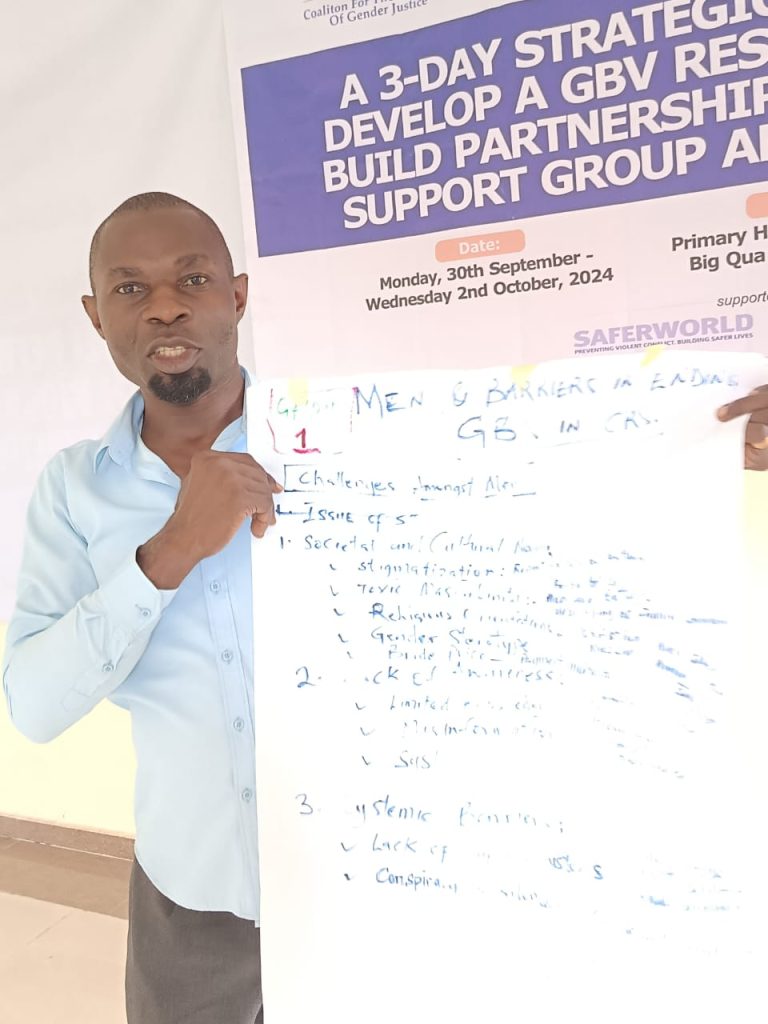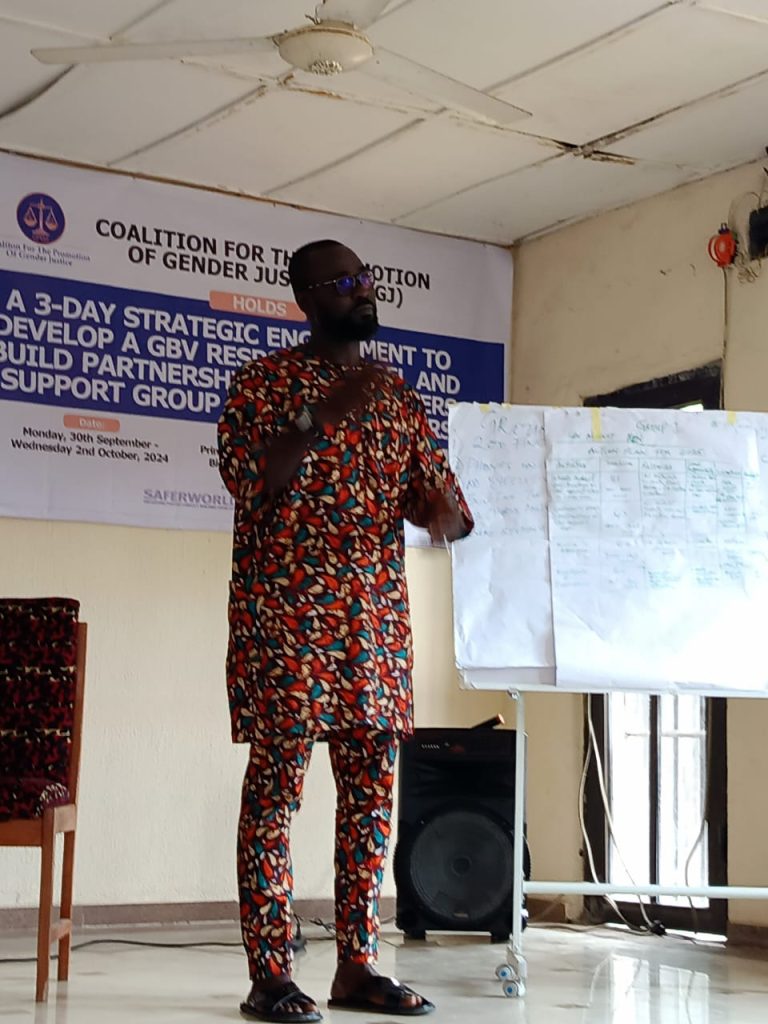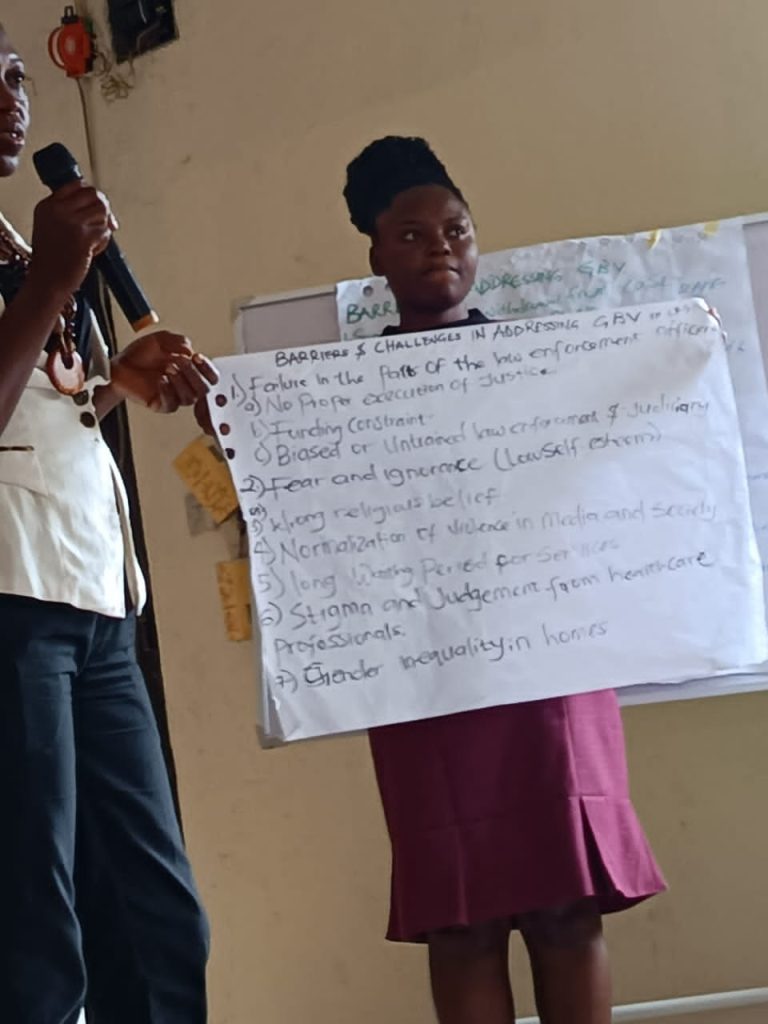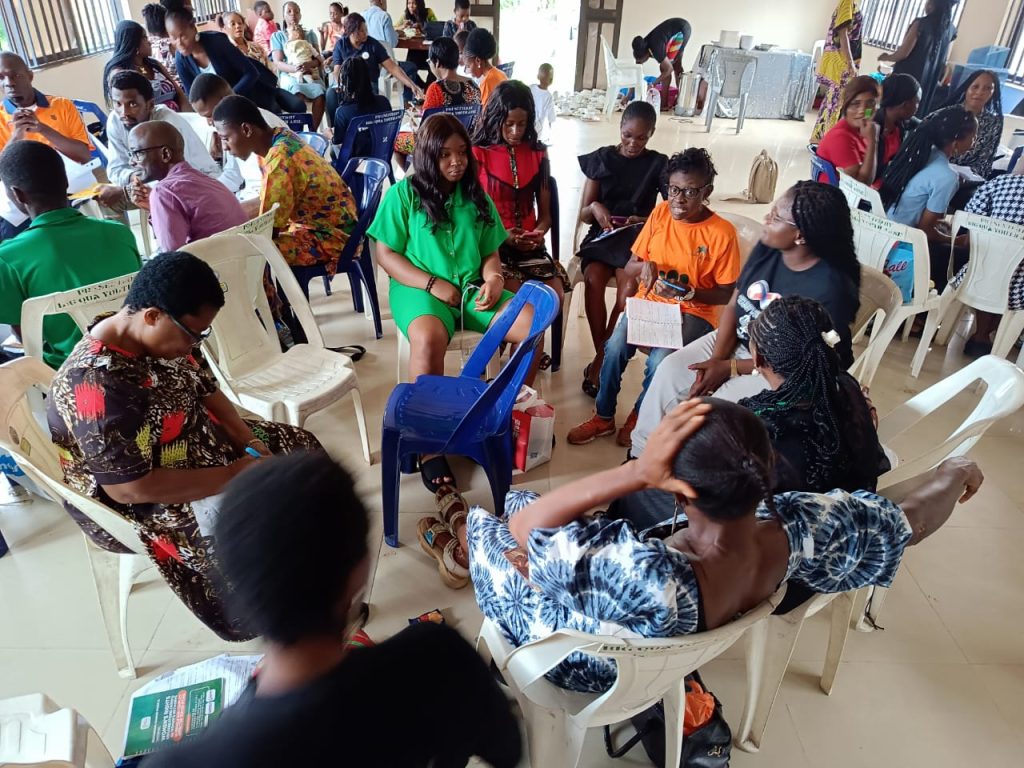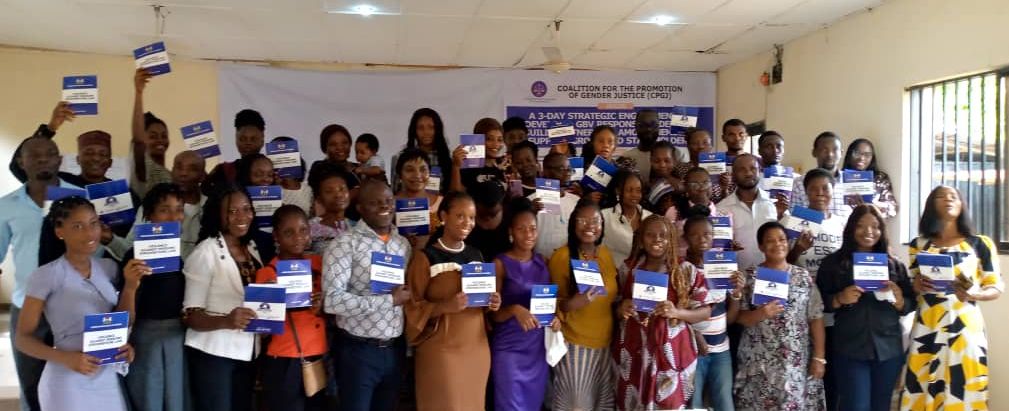By Kelvin Obambon
An umbrella body for civil society groups, the Coalition for the Promotion of Gender Justice (CPGJ), has concluded a 3-day workshop on strategic engagement to develop a Gender Based Violence (GBV) response model and partnership building among its members, support groups and stakeholders.
The workshop held between Monday 30th September and Wednesday 2nd October, 2024 at the Primary Healthcare Centre, Big Qua Town, Calabar, was part of the ‘Resourcing Change Project’ being implemented by CPGJ with support from Safer World and Women’s International League for Peace & Freedom Nigeria.
Speaking during the workshop, Coordinator of CPGJ, Williams Arikpo, said the training was to build the capacity of members of the Coalition for Gender Justice which is a network of individual organizations and support groups that were set up in the course of implementing the Resourcing Change Project.
He added that other stakeholders such as the media, the police, social welfare and persons who respond to survivors of gender based violence were also part of the training workshop.
READ ALSO: Project Grow will concentrate wealth in the hands of farmers rather than middlemen, C’River Gov
Narrating the current state of GBV in Cross River and the effort the Coalition has so far made to reduce the menace, Arikpo said: “We’ve come a long way when it comes to gender based violence, even though there’s still much work to be done. We have started. We are going somewhere. The awareness is there, and people are reporting GBV cases. We have structures such as the VAP Law, which is a plus for us. We also have gender strategic plan; we have standard operating procedure for responding to survivors of gender based violence.
“We have laws, we have policies and institutions which is good. For the police we have the gender unit. Most of the ministries, departments and agencies have gender units. We are hoping that the equal opportunity bill, which is currently before the House of Assembly, will scale through so that we will be able to achieve more. It has already passed second reading.
“The GBV National Dashboard which is managed by the Federal Ministry of Women Affairs, indicates that Cross River, as at the last count, was second while Ebonyi State was first on the reporting of GBV cases. This shows the level of awareness, indicating that most people in the state are getting to know about GBV.”
The project officer, CPGJ, Abenmire Adi, said the Resourcing Change Project implementation began as far back as 2021 and would wind down in 2025. She listed Akamkpa, Odukpani, Calabar South and Calabar Municipality as the four local government areas selected for implementation of the project.
“Last week we organized workshop like this for primary health care centres across Calabar South and Calabar Municipality. Often time we come up with event like this to create awareness basically to aid GBV prevention. There are different parts to the issue of GBV. There’s prevention. There’s also response for survivors. Even while we prioritize preventive measures, there are also programmes for survivor-based approaches, and this is one of such programmes.
“The persons we are training here today are persons already working to curb GBV in various organizations who are members of the Coalition. We have organizations here working on SRHR, awareness creation, response to issues of GBV. This 3-day workshop aims to strengthen their capacity and also co-create models for responding to GBV as institutions.
“It is important that we train and retrain persons working in this field to bring them up to speed with best practices, because recently I paid a visit to a number of non-governmental organizations across states in the US. And in my presentation I try to share some of the successful strategies that work for organizations in other part of the world, and to also bring them up to speed with partnerships, strategies, recent landscape of GBV and how to help these individuals upgrade. It’s like updating their knowledge, and also to create a resource inventory,” she said.
Ms Adi lamented that there are not enough safe spaces in Cross River that could respond and handle cases of GBV survivors on a 24-hour basis. She also said that a lot of organizations in the GBV space do not have ‘victim advocates’.
“One other thing a number of us talk about is the issue of having safe spaces for persons who are survivors of gender based violence. For example, there’s just a one-stop centre that I know of in the state that respond to GBV cases, and it’s not as effective as it is expected to be in the sense that they do not have the capacity to operate 24/7. This is a problem because if a survivor reports a case at odd hours she may not have someone who would come to her rescue at that time.
“A victim advocate serves more like a go-between person. Someone who is like a liaison between the survivors and the law enforcement organizations. This helps the survivors not to be traumatized by frequently showing up in court or the police station to give statements. While all these processes maybe important, we just have to find a creative way to reduce the trauma survivors may face if they have to continually go through all of these processes. Incorporating a victim advocate in our work will curb the trauma the victims face whenever a case of GBV is reported,” she explained.
The project officer also emphasized the need to adopt perpetrator-based approaches in confronting GBV, stating that incorporating men into the programme is a model that has proven successful in other parts of the world.
“For example, in Buffalo, New York, there’s a Catholic charity for men. What they do with that programme is to ensure that men are also brought into the picture, and they have perpetrator-based model where they are made to go through a programme for a period of time. And by the time they graduate, they may even become advocates at the end of the day.
“Statistics show that men are often the perpetrators, even though they can also be survivors of GBV. We are also encouraging men to speak up because they are often ashamed because of the believe that men are strong and are not supposed to be weak. More men need to be carried along. GBV is not women based issue,” she said.
On the role of the Nigeria Police in complementing the efforts of non-governmental organizations in the GBV space, CSP Philomena Modor, head of gender unit, Cross River State Police Command, said that each time a case of GBV is reported, the police carryout proper investigation and ensure that the culprit is arrested and charged to court for prosecution.
She revealed that in 2024 alone, the police have secured 9 convictions for gender based violence offenders, with sentencing “ranging from 7 years, 25 years to life imprisonment.”
CSP Modor, however, appealed to appropriate authorities to provide adequate logistic support and funding for the gender unit of the force to enable it live up to the expectations of the public.
About 50 persons drawn from civil society organizations, law enforcement agency, health care institution and the media participated in the 3-day activity centered workshop.
